Five Years After #MeToo Ignited a Global Reckoning, Harvey Weinstein Is Back on Trial — As Hollywood Continues to Untangle Its Web of Bad Behavior
- Oops!Something went wrong.Please try again later.
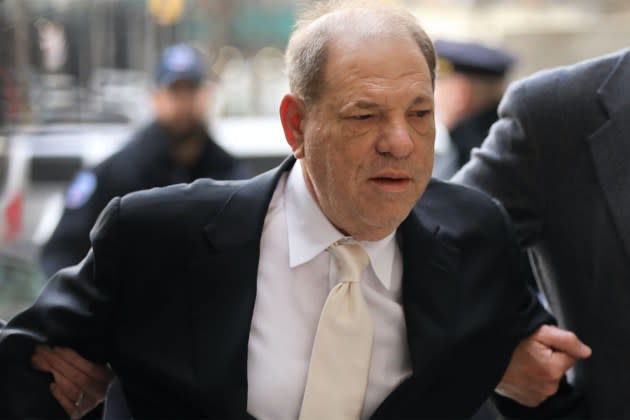
Five years ago, the story that had long been whispered in the halls of agencies and studios, as well as on film and television sets, finally became public. A series of bombshell articles revealed that Harvey Weinstein harassed and assaulted dozens of women for decades and used his power to bully them into silence.
Weinstein’s fall was the fuse that ignited a revolution. That upheaval turned things around for the better, and culture has been forever changed. And yet, the entertainment industry still has a long way to go to untangle a complex web of decades of bad behavior. In an interesting turn of events, the fight for change that began nearly five years ago with those initial stories will be litigated once again in courtrooms across America in the coming weeks.
More from Variety
Sexual violence cases demonstrate the slow arc of justice and the many delays and detours it can take to achieve meaningful progress. After all, Weinstein’s legal issues have not ended, even as his career has atomized. In fact, his next sexual assault trial begins next week in Los Angeles. It involves an entirely new set of charges, separate from the monumental New York trial that put the movie mogul behind bars for 23 years when he was convicted of rape and sexual assault in early 2020. In Los Angeles, he faces 11 counts of rape and sexual assault, stemming from charges from five alleged victims. At the same time, Weinstein is continuing to appeal his New York rape conviction and preparing to defend himself from additional assault charges against him in the U.K.
And Weinstein isn’t the only abuser appearing in front of a judge and jury. There are a number of high-profile cases unfolding on both coasts. Weinstein’s trial will run at the same time and in the same courthouse as the rape case against “That 70’s Show” actor Danny Masterson. In New York, producer Paul Haggis’ rape trial, and a courtroom battle between Kevin Spacey and Anthony Rapp, the actor who accused Spacey of assaulting him in 1986 when Rapp was 14 years old, will begin in the coming days. In 2023, Shia LaBeouf will be on trial for allegations of sexual battery by his ex-girlfriend, the actor and musician FKA Twigs.
They are just the latest to have their day in court. In September, R. Kelly was found guilty in a federal child pornography case, which was separate from his racketeering and sex trafficking conviction that earned him a 30-year sentencing. And earlier this year, Bill Cosby – who was released from prison in 2021, after his 2018 conviction was reversed — was found liable of sexually abusing 16-year-old Judy Huth in 1975 at the Playboy Mansion in a civil jury case.
Of course, the legal battles are on a different level from most stories that have surfaced through the past five years: from Matt Lauer to Bill O’Reilly to Les Moonves to Jeffrey Tambor to Brett Ratner to Marilyn Manson, the list goes on and on. And prior to the #MeToo hashtag taking off in 2017, the accusations against Cosby and the unraveling of Fox News honcho Roger Ailes set the stage for a global reckoning.
Still, supporters of the movement caution that more needs to change and that many incidents of harassment, abuse or rape are neither reported, nor investigated. According to RAINN, out of 1,000 sexual assaults, only 25 perpetrators will be incarcerated — meaning 975 will walk free.
“There’s the court of public opinion, and there’s the court of law,” says Gloria Allred, the high-wattage attorney and women’s rights activist, who has successfully represented victims who have accused Jeffrey Epstein, Weinstein, Cosby and R. Kelly.
“There are so many changes, it’s hard to know where to begin,” Allred says, applauding the progress she’s witnessed over the past five years. But when asked if it’s gotten easier, she briefly pauses before bluntly responding, “Not really. I live in a war zone every day.”
Allred will represent three women testifying in Weinstein’s upcoming L.A. trial. She says even though the convicted rapist is already imprisoned, this next trial is crucial because every woman deserves her day in court. “It’s about seeking justice for them,” she says.
“There is no limit to the number of prosecutions that are appropriate, if there is sufficient evidence to justify a prosecution elsewhere of the same defendant,” Allred says, noting her work with victims of R. Kelly, who has faced a total of four prosecutions in different states.
For Caitlin Dulany — a survivor who was one of the first women to speak out against Weinstein – the upcoming trial is nerve-wracking.
“I really feel that while we’ve gotten to the point as a society where we realize that living without sexual assault is a basic human right and we’re aware of how pervasive it is, but the justice system really still needs to catch up,” Dulany says.
“If these cases don’t go the right way, it will be a real setback, and these trials are important,” Dulany continues. “I was so full of optimism when Harvey Weinstein was sentenced in New York, but the fact that his case is going to be heard on appeal in the highest court in New York — looking at the battles that have taken place, there are still cracks in the law and there is still a lot of work to be done. Bill Cosby is a free man. These are serial predators; awful men who got away with awful horrible things for years.”
This August, the New York Court of Appeals — the highest court in that state — agreed to hear Weinstein’s appeal of his New York conviction, allowing Weinstein’s lawyers to argue their case more than two years after he was sentenced and convicted of first-degree criminal sexual act and third-degree rape charges. This came after a lower state appeals court rejected his request, upholding his conviction. “We are hopeful and grateful for this rare opportunity,” Weinstein’s spokesperson, Juda Engelmayer, said in August.
Since the allegations against him first surfaced, Weinstein has maintained his innocence. His New York defense team has said that their client’s trial was tainted, due to a biased judge and juror.
Many survivors of Weinstein worry that his New York conviction could be overturned. After all, Cosby walked free on a technicality after serving nearly three years in prison.
“The legal system doesn’t always keep pace with society,” Dulany says. “If you look at Roe v. Wade, culturally, we may have grown and evolved and we may believe in something, but we need the legal system to make it real.”
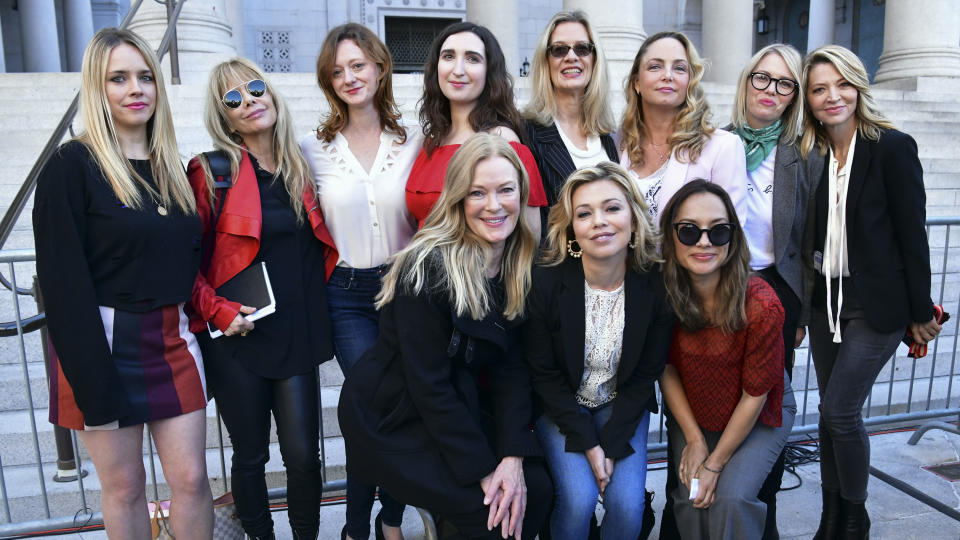
Dulany was one of more than 100 women have come forward to accuse Weinstein. Like many other Silence Breakers who became public faces with immense pressure (and judgement) on their shoulders overnight, Dulany has dedicated part of her life to activism. She was elected in September 2021 as a Los Angeles Local Board Member with SAG-AFTRA, and is a member of the National Sexual Harassment Prevention Committee, which was formed in 2021 by SAG-AFTRA president Fran Drescher.
“I ran for election because I wanted to affect change for our members in the area of safety from sexual harassment,” Dulany says. “I never thought that I would speak of what happened to me,” she adds. “Part of the healing has been feeling like I have some influence over making the world a safer place. There is so much more awareness around the issue of sexual assault, I feel it’s become a better world.”
Some of the issues Dulany has worked on include a platform and app for members of the guild to safely report sexual harassment, and increasing the time limit for members to report harassment. She also organized with other members to ask SAG-AFTRA to support the role of intimacy coordinators on sets, which was introduced into the union’s standards in early 2020.
Dulany has met with the D.A.’s office and has offered to testify in both of Weinstein’s trials. But because of the statute of limitations (she accused Weinstein of abusing her at Cannes in 1996), she has not been able to take the stand. Over the past five years, there have been some extensions of the statute of limitations in the state of California.
“It would have been fantastic if the D.A. could take everyone he spoke to and bring us up there to paint the picture, but that’s not what happens in a court of law,” she says. “There are a lot of challenges in court about the validity of survivors’ stories and how they can seek justice. How victims of sexual violence are treated in the justice system is still very progressive thinking, and that is a big work in progress in this country.”
Weinstein’s upcoming trial will have “prior bad acts” witnesses take the stand, in support of five other women whose claims form the basis of the charges in the case. In other words, those witnesses’ allegations don’t carry charges, but can establish a pattern of abuse over a long period of time that might not be within the statute of limitations. Known to some as “Me Too witnesses,” whether these witnesses should be allowed inside a courtroom has become a hot button issue in sexual violence cases, with the defense arguing that there is an established amount of time in which someone can bring about charges for a reason, and hearing from these additional witnesses violates a defendant’s rights. For Weinstein’s upcoming trial, the prosecution asked for 16 witnesses and the judge allowed five; now, there will be four.
“Almost always, a defendant objects to the calling of any ‘Me Too witness.’ They generally will say it’s more prejudicial than probative,” Allred explains. “If it is likely to lead to the truth — then they should be permitted to testify. It’s relevant evidence.”
Many laws passed over the past five years have been inspired by the #MeToo movement, helping the justice system catch up to society’s changing ways.
In April 2021, three women who testified in Weinstein’s New York trial backed legislation introduced by New York lawmakers that defines the issue of consent. Dawn Dunning, Tarale Wulff and Jessica Mann all endorsed Bill A6540, which proposes adding a legal definition of the word “consent” to the state’s criminal code. Speaking at a press conference, the women noted that when the jury asked the judge during their trial to provide the definition of consent, he said, “Use your common sense.”
This year, the Adult Survivors Act in New York was signed by Gov. Kathy Hochul and will soon go into effect, giving adult survivors of sexual assault a one-year lookback window to sue their abusers, regardless of when the abuse occurred. That law had previously been supported by a handful of Weinstein survivors, who in 2020 wrote a letter pushing for the legislation to former New York Gov. Andrew Cuomo — who later resigned from his position amid his own sexual harassment allegations.
The Adult Survivors Act was modeled after the Child Victims Act, which allowed victims with old claims that have passed the statute of limitations to take action legally, even decades later. This past summer, the civil trial for Cosby accuser Huth marked the first case to go to trial under the Child Victims Act. (The New York change of law was also the reason why thousands of child abuse claims against high-profile Catholic priests have been filed filed.)
“It will affect not only Judy, but hundreds of thousands potential victims of child sexual abuse,” says Allred, who represented Huth against Cosby this summer when she was awarded $500,000 in damages.
Allred adds, “Part of the meat to the movement is this legislative change.”
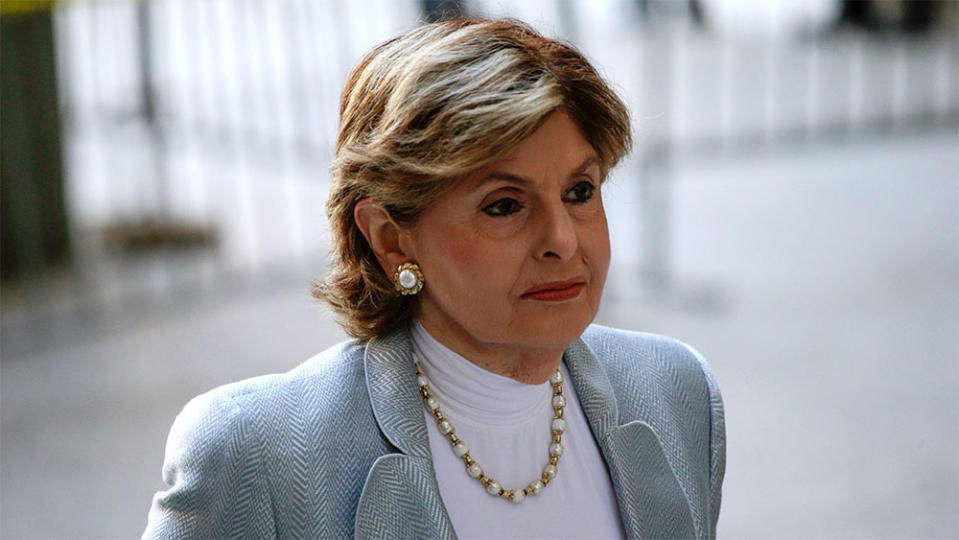
In some ways, it feels like the Weinstein story broke just yesterday. At the same time, it’s been a long enough span that there is already a movie coming out about it.
“She Said,” based on the book by the New York Times reporters, Jodi Kantor and Megan Twohey, who broke the first Weinstein story, will be released Nov. 18 by Universal. The studio film features a few real-life survivors and actors who auditioned for small roles.
Sarah Ann Masse, an actor who came forward with misconduct allegations against Weinstein in 2017, appears in “She Said.” In recent years, she worked on the Adult Survivors Act in New York and is on the national and local SAG-AFTRA sexual harassment prevention committees. She launched her own initiative, Hire Survivors Hollywood, to help advise Hollywood companies on best practices to create opportunities for survivors of sexual violence. Masse says that even with the progress of the last five years, survivors are still being left out of the narrative.
“While there are many projects being made about survivors, many changes to policies and practices on set and many folks who are thriving in this ‘post reckoning’ Hollywood, the individuals who have faced abuse — and oftentimes put their careers on the line to talk about that abuse — are being left behind,” Masse says. “I think there is a clear understanding that the progress that came from survivors sharing their stories is essential, but I think there is also an amnesia around the fact that these survivors are not a faceless, monolithic group, but instead a massive community of individuals who have been deeply impacted by abuse, retaliation, and harm.”
Speaking of her work as the founder of Hire Survivors Hollywood, she adds, “It is our duty and our privilege to guarantee that survivors never feel left out, silenced, or ignored ever again.”

“She Said” is not the only #MeToo inspired project that’s been floating around the business.
An uproar of documentaries have surfaced, ranging from the recently-announced Prince Andrew doc at Peacock, which will explore the sexual assault allegations against the Duke of York and his friendship with Jeffrey Epstein and Ghislaine Maxwell, to HBO’s “Allen v. Farrow” to Lifetime’s groundbreaking “Surviving R. Kelly” to “House of Hammer” on Discovery Plus, which delved into the abuse allegations against Armie Hammer that the actor has long-denied.
Showcasing just one of the many complexities around bringing victims’ stories of abuse to screen is one of Hammer’s accusers speaking out against “House of Hammer.” The woman, known as Effie, said, “The way they’ve been exploiting my trauma is disgusting.” Effie had first accused Hammer of rape during a press conference with her former attorney, Allred, and that allegation led to a LAPD investigation, which is still ongoing, but has not resulted in any charges. At the time, the actor’s lawyer denied the accusation, stating, “Effie’s own correspondence with Mr. Hammer undermines and refutes her outrageous allegations.”
Allred appeared in “House of Hammer,” and Effie said she was not aware of Allred’s appearance in the docuseries. Variety has learned that Allred is no longer representing Effie. (“I have no additional comment, except to say that the allegation that she fired me is absolutely false,” Allred wrote in an email to Variety.) Complicating the Hammer matter even further, reports have emerged and Effie has alleged that the actor’s ex-wife, Elizabeth Chambers, was behind exposing her former husband and had convinced women to come forward, amid their marriage falling apart. (Variety reached out to a representative for Chambers, who did not respond for comment.)
One of the most talked-about docuseries post #MeToo was HBO’s “Allen v. Farrow,” which documents the sexual abuse allegations against Woody Allen involving his then-7-year-old adopted daughter, Dylan Farrow. Her brother, Ronan Farrow, appears in that doc — but the reporter also inked a multi-year deal with HBO to develop investigative content, including a documentary series, “Catch and Kill: The Podcast Tapes,” based on his 2019 book, “Catch and Kill.”
Farrow’s 2017 bombshell report in The New Yorker brought forth the first rape allegation against Weinstein and helped break open the dam into #MeToo, alongside the bombshell report in The New York Times. (All three journalists won the Pulitzer Prize for their reporting.)
“I think that there was a lingering assumption around the Weinstein story that it just couldn’t be cracked, and that the blowback was going to be too intense to make it feasible, or that it couldn’t be buttoned up and bulletproof,” Farrow says, reflecting on breaking the story. He credits his sources with bravely speaking out, due to their frustration around the culture of silence.
“There were many wonderful reporters who did important work around Weinstein and the wider set of stories about violence that came out in that time,” Farrow continues, emphasizing the importance of investigative journalism on the backdrop of an “imperfect” criminal justice system. Farrow says he’s inspired by the future generation of college journalists, who’ve shown a keen interest in digging for the truth, as they’ve grown up in the #MeToo era. “My hope is that the reporting reminds us all that it’s worth going for it, if there’s enough evidence there that gives a sense that there might be more — and that was certainly the case here.”
Aside from best-selling books, buzzy documentaries and feature films, one of the most-watched television events this past year was the Johnny Depp and Amber Heard trial, which ended in Depp’s favor. (The trial already inspired a Tubi Original film, “Hot Take: The Depp/Heard Trial,” which received a less-than-stellar review from Variety’s Owen Gleiberman.)
That televised trial generated immense interest and resulted in billions of views on anti-Heard posts trending on TikTok. Many supporters of the #MeToo movement have said that case was a step backward for the cause.
The movement has faced its fair share of criticism over the past five years with detractors saying things have gone too far, and that every misdeed cannot be painted with the same broad brush, particularly in the age of so-called cancel culture. Critics have asked whether Weinstein’s heinous crimes should be considered on the same level with those industry figures who committed lesser misdeeds.
“There are all kinds of complex discussions,” Farrow says. “I reported on a very serious violent crime, but there are those gray areas that are triggering debate — I think correctly.”
Make no mistake: many high-powered men who have fallen from grace amid accusations have attempted comebacks. Earlier this year, Charlie Rose — who was fired from CBS and PBS after being accused of harassment by eight women — reentered the public eye by publishing an interview with Warren Buffet on his own website. Earlier this week, Chris Cuomo — who was axed by CNN for myriad reasons, including a sexual misconduct allegation by a former news colleague — launched his own new show on NewsNation. And Louis C.K. — who admitted to masturbating in front of women — won a Grammy this year.
Farrow says that ultimately, there is no turning back. The culture of deep-rooted systemic abuse of power will no longer be tolerated to the extent that it once was. “Wherever that all settles and however it evolves over time,” Farrow says, “I believe the fundamentals of, ‘Hey, we’ve got to hold powerful bosses to account,’ I don’t think that genie goes back in the bottle.”
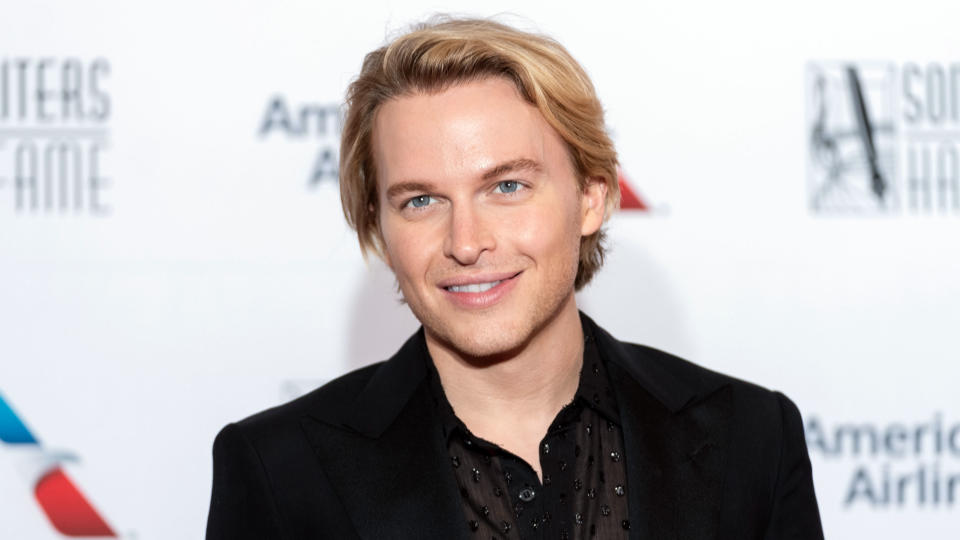
In the wake of the uproar of allegations in 2017, Hollywood put its best face forward, but has stumbled. Many have questioned, in a business of make-believe, what is real and what is simply for good publicity?
In 2018, a coordinated protest of A-list actors saw the Golden Globes red carpet turn into a sea of black gowns with the world’s biggest stars wearing Time’s Up pins. Years later, Time’s Up, the organization that had pledged to end sexual harassment and attracted support from the industry’s biggest stars, is basically defunct, having suffered a conflict-of-interest scandal of its own. Its implosion was sparked by a scandal involving its CEO and Michelle Obama’s former chief of staff Tina Tchen’s close association with former New York Governor Andrew Cuomo, who had been accused of sexual harassment. Today, Time’s Up is under a “reset,” having laid off most of its staff, though the skeletal organization pledges to continue its fight to protect women.
But never the less, Hollywood is doing its part to try to rid the industry of bad behavior and those who perpetrate it. Other organizations and non-profits are working towards progress.
Anita Hill – who became a national figure when she publicly accused Justice Clarence Thomas of sexual harassment during his Senate confirmation in 1991 — has been a key force in the fight to end Hollywood’s long history of sexual harassment, gender discrimination and racial bias. In 2017, she was named chair of the Hollywood Commission for Eliminating Sexual Harassment and Advancing Equality, which was founded by Lucasfilm president Kathleen Kennedy and high-powered entertainment attorney Nina Shaw.
In early 2020, The Hollywood Commission conducted a groundbreaking survey of nearly 10,000 workers in the entertainment business to help provide real data to the industry. The survey unearthed data of the culture and climate in Hollywood, dealing with accountability, the abuse of power and the difficulty of reporting harassment and retaliation. One key piece of data found that less than half of survey participants noted any progress since the #MeToo movement launched. Other survey findings showed that the majority of workers do not believe that those in positions of power are held accountable for their actions, and that reporting harassment is one of the biggest challenges in the workplace with only 23% of sexual harassment victims sharing their experience with a supervisor and only 9% reporting to human resources.
“Five years ago, the reporting revealed how malignant the problem was and how it had been ignored and, in some cases, romanticized as part of the Hollywood lore,” Hill says. “What we wanted to do was change the culture and structures that allowed it to continue.”
Since their survey was conducted, the Commission has released an employer toolkit to help companies build more inclusive work environments, and has hosted summits, industry roundtables, panels and training workshops for approximately 30 organizations and over 1,000 workers, including sessions for talent agencies, groups such as AMPAS, the Television Academy, the Producer’s Guild and more. Training has been on the topics of power, bullying, toxic workplaces, bystander intervention, creating cultures of respect and building accountability for DEI initiatives.
“What is critical is the work we do together: as an organization advocating for institutional change, the Hollywood Commission exists to provide institutions – and the people who work for and with them – with the training, education, and resources to help foster that change,” Hill says.
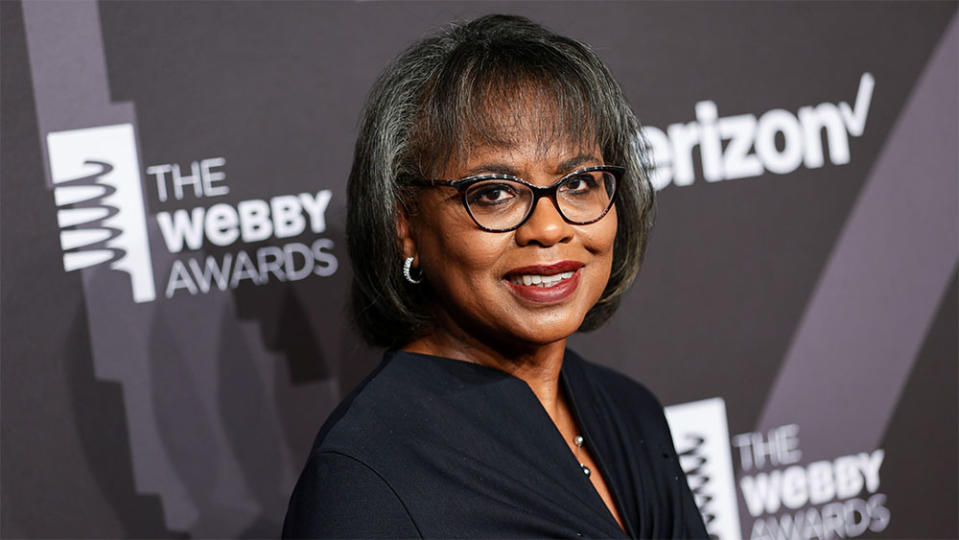
So, how can Hollywood ensure that its sets and office suites are free from sexual assault? What do the current generation of executives and artists need to do if they want to make certain that the next generation doesn’t have to face the same harassment that they endured?
“Sexual violence is about power,” says Dulany. “There is more awareness, there are more programs in place, but there is still vulnerability within the entertainment business. The goal would be to live in a world where sexual violence didn’t exist.”
Although the #MeToo movement began five years ago, the fight for justice has going on far longer. Activist Tarana Burke first coined the term “Me Too” on MySpace in 2006, more than a decade before the hashtag ignited a protest movement and inspired an explosion of allegations that has fundamentally changed how Hollywood operates.
“Many people think the #MeToo movement started five years ago,” Allred said. “The hashtag did, and that’s good that people are paying attention, but we can’t forget our history: women have been very courageous for many years.”
Best of Variety
Sign up for Variety’s Newsletter. For the latest news, follow us on Facebook, Twitter, and Instagram.

